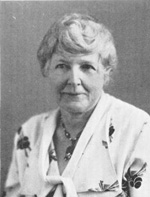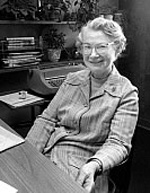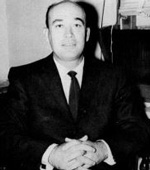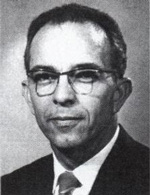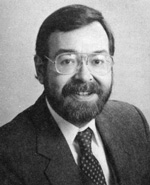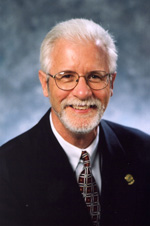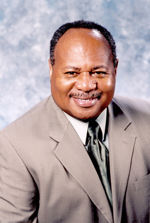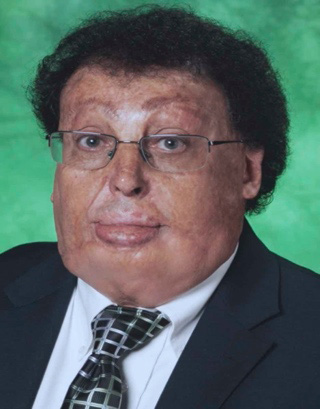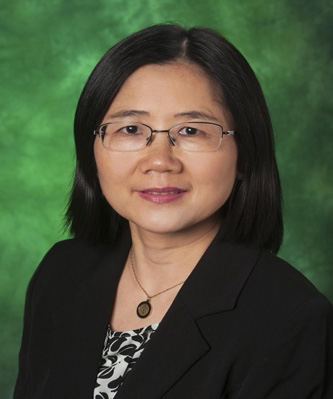Education for librarianship at the University of North Texas spans a period of more than eight decades. The June 1925 issue of the North Texas State Teachers College Bulletin listed for the first time Library 101, 102, and 103, taught by Pearl C. McCracken, the college librarian. These courses, which were among the first library science classes offered by any Texas college, focused on the practical use of books.
In 1935/36, after a lapse of three years, Lady Kate Medders, who had taught previously in the English Department, offered new courses designed in part to meet requests for training of teacher-librarians for school library settings. Twenty-three students enrolled in the 1935/36 summer term for the four courses taught by Mrs. Medders and Beatrice Holt, a visiting instructor from the School of Librarianship at the University of Denver.
In fall 1939, when the degree program at the undergraduate and post-baccalaureate levels were inaugurated, the Department of Library Service was established within the College of Arts and Sciences. Dr. William Stanley Hoole, who had succeeded Mrs. McCracken, was appointed to the combined post of librarian and director of the new department.
Robert R. Douglass, who later became director of the Graduate Library School at the University of Texas when it began in 1948, joined Dr. Hoole and Mrs. Medders in the spring of 1940. The first students enrolled in the new department received their degrees in the 1940-41 academic year, during which time several additional faculty members were added to cover new course offerings.
The four-year undergraduate program offered at the time the department began, led to the Bachelor of Arts or Bachelor of Science degree with a 30 semester-hour major in library service. A 5th year post-baccalaureate program leading to the Bachelor of Science in Library Service (B.S. in L.S.) degree, the standard graduate degree at the time, was available for those seeking professional library careers. An undergraduate minor was also available to those interested in teacher-librarian positions.
Students in the 5th year post-baccalaureate program, the B.S. in L.S., wishing to prepare for the professional positions in the field were expected "to cultivate wide reading interests and train themselves to assimilate information." Their general educational background should equip them "to read intelligently in sociology, economics, science, education, journalism, psychology, music, and other departments of learning which are commonly known to make for a well-balanced education. They also were required to have a background in "foreign and national histories" and a working knowledge of at least one foreign language.
Following the successful launching of the Department of Library Service in 1939, new courses continued to be introduced, and in 1940 the first of a series of Summer Clinics for School Librarians was added. Due to its growth in enrollment and reputation, the Department soon emerged as the principal supplier of librarians throughout the state.
When Dr. Hoole resigned, Dr. Arthur M. Sampley was appointed Director of Libraries and of the Department of Library Service in 1944. Dr. Sampley continued in this dual role until his appointment in 1953 to the deanship of the College of Arts and Sciences. During these early years and until her retirement in 1953, Mrs. Medders continued to serve as the guiding spirit for faculty and students alike. Dr. Sarah Law Kennerly began her 25 year service with the program in 1952. During the late 1940's and early 1950's, new courses were added in books and materials for children and young adults, academic library administration, and special libraries.
In 1953, when Dr. Arthur Sampley moved to his new position as dean of the College of Arts and Sciences, Dr. David A. Webb was named Director of Libraries and of the Department of Library Service. During the mid-1950s, the primary aim of the Department was to provide prospective librarians in all fields with a basic professional education.
Increased attention, however, was given to the role of the post-baccalaureate program as the basic preparation for librarians, and in 1963 a new Master of Library Science degree was instituted, superseding the former fifth-year Bachelor of Science in Library Service degree. Dr. Webb subsequently guided the Department through the review and accreditation of the master's program by the American Library Association in 1965-66.
When Dr. Webb relinquished his dual directorship in 1967 to devote full time to the office of Director of Libraries, Dr. C. Glenn Sparks succeeded him as director of the Department. During Dr. Sparks' years as director (1967-1972), the Federation of North Texas Area Universities was established. The post-master's Certificate of Advanced Study was introduced in 1968, and the Doctor of Philosophy degree, in formal cooperation with the School of Library Science at Texas Woman's University (TWU) was instituted in 1967. At the same time, the Department of Library Sciences was reorganized and established as the School of Library and Information Sciences with Dr. Sparks as dean. The mission of the school was redefined to focus on professional programs at the graduate level, and in 1970 the undergraduate major was discontinued.
In 1973, Dr. Dewey E. Carroll succeeded Dr. Sparks as dean of the school. Construction and renovation of new quarters began the following year. Administrative and faculty offices were moved to Marquis Hall and classes were taught in several campus buildings. The new facilities, on the second floor of the renamed Information Science Building, originally the main university library, were occupied in the summer of 1975. This facility would continue to house the school until the move to Discovery Park in August 2008.
During the late 1970s, undergraduate course offerings were reviewed in light of recent developments in the field, and in 1981, the undergraduate major was reactivated. The concentration in information science in both the graduate and undergraduate levels was added in fall 1983, at which time the master's degree designation was changed to M.S. with concentrations in either library science or information science.
The faculty, which had remained small and relatively unchanged over the years was increased when several new positions were added. Following the retirement of a number of key faculty members in 1977, five new members with varied specialties joined the school, and Dr. Herman Totten, one of the new faculty members, became the first associate dean. The American Library Association that had first accredited the master's degree program in 1965-66, reaccredited the program during Dean Carroll's tenure in 1976 and 1984.
The 1987/88 year brought many changes to the school. Dr. Dewey E. Carroll, who had served as dean since 1973, returned to full-time teaching. A competent and committed faculty welcomed the leadership of Dean Raymond F. Von Dran in fall 1987, and marked the year with retreats, meetings, and forums. Among the many activities were efforts to increase the School's visibility throughout the state and nation, to develop partnerships with the professional community, to raise funds through the phonothon (telephone calls to alumni) and other activities. Reorganization took place with Margaret Irby Nichols, the new assistant dean, taking on responsibilities in recruitment, admission, and advisement of students. The curriculum was reviewed and core requirements were reconstructed, expanded, and enhanced.
Growth and change continued as new faculty members were added and the school became responsible for the required undergraduate course in children's literature for elementary education majors. In September 1988, the School's first extension program began at Texas Tech University. With the addition of students in the Texas Tech program and a continued growth on campus, enrollment in all programs reached 420 by spring 1990, making the School the largest in the state.
A full time program of study was inaugurated in Houston in January 1991, with courses taught on the University of Houston campus by full-time members of the school's faculty. The program has developed into a major asset for the School.
A major development of the period was phasing out of the doctoral program in library science. The first doctoral students were enrolled in 1970, and the first PhD degree was awarded in 1975. From that time through 1988, 70 additional students received the PhD degree. In December 1987, the Texas Higher Education Coordinating Board announced its review of the doctoral program and slated its closure in 1992. At that time, the University of North Texas established the Interdisciplinary PhD in Information Science. The innovative program is unique to the state and region and achieved national recognition for SLIS.
The School underwent a change in the deanship when Dr. Raymond Von Dran resigned in 1995, in order to become dean of the School of Information Studies at Syracuse University. Dr. Philip Turner took over the deanship in September 1996.
Dean Turner, who brought experience in distance learning from the University of Alabama where he formerly served as dean, bore the dual title of Dean of the School of Library and Information Sciences (SLIS) and Associate Vice President for Academic Affairs for Distance Education. He and the faculty joined forces in leading the program into the forefront of the emerging trend toward web-based course offerings. The faculty began to prepare courses either completely or partly in web based format. One of the first accomplishments in this area came in 1999 when UNT became the first in the nation to offer the Learning Resource Endorsement online. The program met with immediate success. In spring 2001, enrollment increased 40% over the previous spring due to the popularity of the Web based courses, and in spring 2004, enrollment in master's students totaled 827, an increase of 45% over the previous spring.
In answer to the needs of students pursuing all or part of their program in distance learning mode, the school launched the first Web Institute in June 2001. The Institutes had become an integral and required part of the learning experience for all students working toward the master's degree until Fall 2018. At the second Web Institute, students begin Introduction to Information Organization, the third of the core courses. Advising sessions with students also are available. The primary focus of the Web Institutes is to give students the foundation necessary to be successful in these demanding core courses. The remainder of the student's program are completed electronically. The benefits of the Web Institutes were decreased with the advancement of Internet technologies. Faculty voted to discontinue the Institutes in Fall 2018.
Starting in 1999, the School began offering the master's degree at out-of-state locations in partnership with local institutions. The first was offered in Minnesota when SLIS entered into an agreement with St. Cloud State University. Second and third cohorts were launched in 2001 and 2004 respectively when agreements were renewed with the University of Minnesota Law Library.
In 2001, the School formed a partnership with the University of Nevada Las Vegas and began the first Nevada Cohort in 2002. A second Nevada Cohort, supported with student grants awarded by the Institute for Museums and Library Services, began in 2003 in collaboration with the Las Vegas/Clark County Library District and the University of Nevada Las Vegas Libraries. A third cohort started in 2005, and a fourth cohort started in 2007, both were supported by student grants awarded by the Laura Bush 21st Century Library Program.
The out-of-state programs continued to thrive with grant-based cohorts beginning in Virginia and Georgia in fall 2008 and one that began in California in 2009. In 2015, the New Mexico cohort started, and was a partnership with the University of New Mexico Health Sciences Library.
In 2004, the Institute of Museums and Library Services awarded the school a grant to recruit 20 bilingual students to complete a master's degree online. The program was designed to help alleviate the problem of unfilled professional positions in both academic and public libraries along the Texas and New Mexico border.
The School received a grant in 2004 from the Institute of Museums and Library Services to support students in the Interdisciplinary Information Science Doctoral Program with half of the cohort to focus on school media and half on public libraries. Together with matching contributions from SLIS, the funding covered two years tuition, travel to campus, and digital connectivity for students in this unique distance-independent education experience. In 2005, SLIS received an additional cohort grant with the same focus as the 2004 grant.
The Capital Campaign was launched on March 10, 2001, with the aim of creating a million dollar endowment for the school. The University set the school's goal at $1.1 million, which was met with a total of over $1.4 million. One of the efforts begun during the campaign resulted in the establishment of the Hazel Harvey Peace Professorship in Children's Library Services honoring the Fort Worth educator and community leader. At about the same time, it was announced that Emeritus Professor Sarah Law Kennerly (1951-1977), who died in 2002, left $2.25 million to the school.
In 2004, Dr. Philip Turner gave up his positions as dean of SLIS and Associate Vice-President for Academic Affairs for Distant Learning and became UNT Vice-Provost for Learning Enhancement, assuming the role of directing the university's online academic programs. At that time, Associate Professor Samantha Hastings became Interim Dean, a position she held until fall 2005 when she resigned to become director of the library and information science program at the University of South Carolina. Regents Professor Herman L. Totten, who had served the previous four years as faculty executive assistant to the UNT President, became the fifth dean of the school. Associate Professor Linda Schamber, who joined the faculty in 1991, was appointed Associate Dean in October 2005.
One of Dean Totten's first responsibilities was completion of the self-study required by the ALA Committee on Accreditation's process for re-affirmation of accreditation of the master's program. The school was re-accreditated in June 2006.
Dean Totten also announced his Vision 2020 plan that emphasized research and interdisciplinarity. One goal was to establish several new programs of study to address the changing needs of students and employers. Three such programs were identified; digital knowledge management, information security, and crisis information management.
The goal of filling five faculty positions by the 2007-08 academic year was met, bringing the total number of faculty to 18. He also supported the Texas Center for Digital Knowledge (TxCDK) to become self-sustaining as an internationally recognized research, development and consulting service for interdisciplinary projects. TxCDK was discontinued when its director, Dr. William Moen moved to work in other units at the University.
It was announced in early 2008 that the school would move to Discovery Park, the new UNT research park located 4.5 miles from the main campus. The move took place in August 2008, in time for the start of the 2008-09 academic year.
In fall 2008, the School of Library and Information Sciences consolidated with the Department of Learning Technologies to become the College of Library & Information Sciences, and Technologies. Dr. Herman L. Totten became dean of the new college, while Dr. Maurice Wheeler became interim chair of the Department of Library and Information Sciences and Dr. Jeff Allen became interim chair of the Department of Learning Technologies.
In August 2010, Dr. Suliman Hawamdeh joined the College of Information as department chair of Library and Information Sciences. During his tenure, the Department continued to grow by increasing enrollment and expanding the number of cohorts around the country. In 2011, the Department joined the Web-based Information Science Education (WISE) group to offer online quality education to participating library and information science schools around the country. WISE provides UNT students with the opportunity to take online courses from other MLIS-accredited programs. In 2013, the Interdisciplinary Ph.D. program moved from the Toulouse Graduate School and the College of Information to the Department of Information Science. In 2012, the university was awarded a collaborative NSF grant in the area of cybersecurity with the participation of Dr. Hawamdeh as Co-PI on the grant. As a result of the NSF grant, a concentration in cybersecurity was added to the Ph.D. program paving the way for the creation of several concentrations in various areas including health informatics, data science, journalism and linguistics. In 2013, Dr. Hawamdeh oversaw the successful accreditation of the Master of Science program. The Department and the College joined the iCaucus consortium in 2015. In 2016, the Department's name was changed to the Department of Information Science to better represent the increase in program offerings and the diverse body of students. In 2016, the department started the Master of Science in Data Science, and in 2017 the Bachelor of Science in Data Science degree programs. In 2017, the Department created several scholarships and received several generous donations. The largest donation received was in the amount of $1.2 million from alumna Jesse Reinburg for an endowed data science professorship.
In 2018, Dr. Hawamdeh returned to the faculty as a professor and Dr. Jiangping Chen became the department Chair. Dr. Barbara Schultz-Jones was appointed Associate Chair in January 2021. In 2020, Dr. Chen oversaw the successful re-accreditation of the Master of Science in Library or Information Science program by the American Library Association and the Texas Higher Education Coordination Board program review. The Department now has six degree programs in Information Science, Library Science, and Data Science.
Department Leadership
